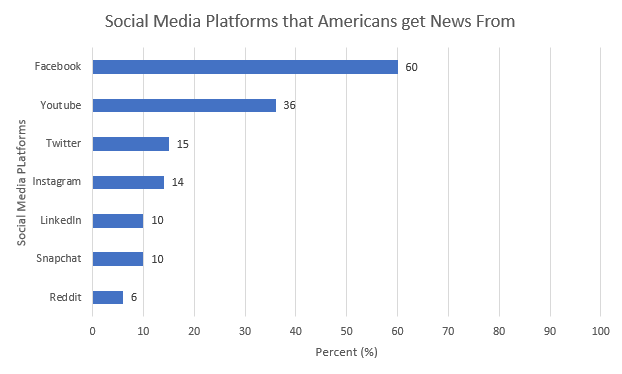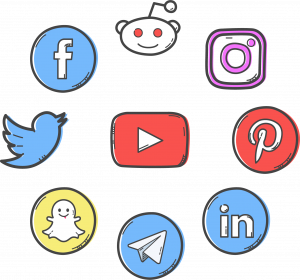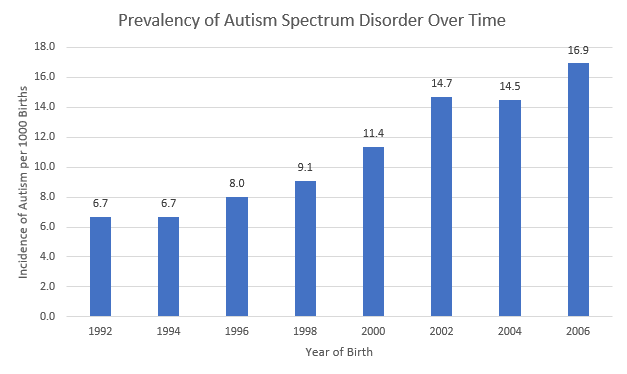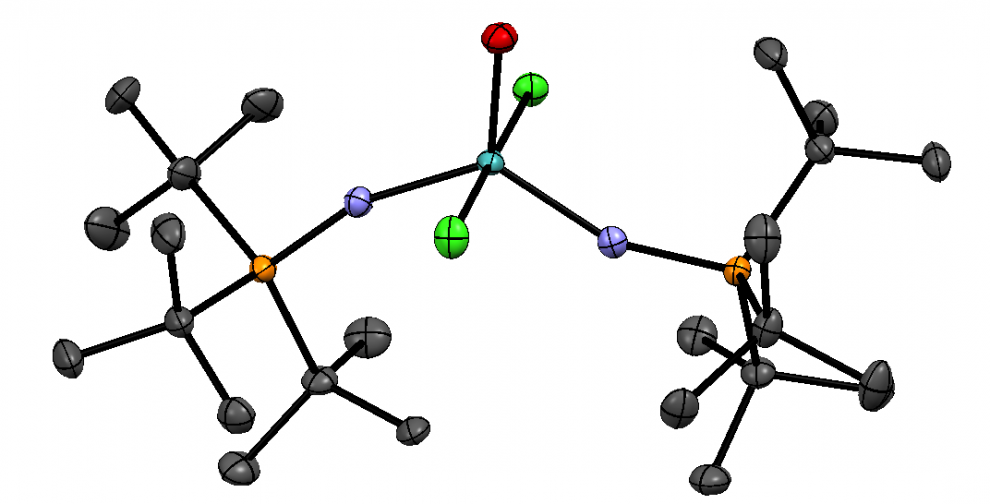Misinformation is false information that is spread, regardless of whether there is intent to mislead or not.
With the internet quickly gaining popularity near the turn of the century, information sharing had become easier than ever before. News traveled quickly as news-agencies could publish online and social media could spread it. Anybody could share their thoughts on websites. The Information Age was here.

Social Media Platforms that Americans use for news; adapted from American Press Institute.
Compared to the past, the internet offered a much faster medium for information. This was beneficial because plenty of info became easily accessible to the public. However, both experts and people who claimed to be the former could share their knowledge.
With the speeds at which information could now move, misinformation could also spread quickly. Take the Boston Marathon bombing incident as an example. On social media websites (like 4Chan, Reddit, and Twitter) there were internet sleuths hard at work identifying the Boston Bombers. Even credible news-agencies were racing to report the information without proper verification. This caused more harm than good; false information was given credibility. One family had to remove a Facebook page that they had put up to find their missing son.

Social Media Platforms. Source: kisspng
On the internet, everyone has a voice. It is simple for anybody to find a community that shares a point of view that they agree with. Sometimes, this idea may not be correct. One only needs to look at vaccines to encounter this scenario. In the past few decades, some people have begun to reject vaccinations and declare vaccines to be the cause of autism spectrum disorder. While it is true that the rate of diagnosis has increased in this time period, this is likely due to advancements in autism research.

Autism prevalency overtime (diagnosis was 8 years after year of birth); adapted from CDC.
Unfortunately, the idea of this link quickly gained traction after Andrew Wakefield published his research about the relationship between the usage of the measles, mumps, rubella (MMR) vaccine and autism. Eventually, he had his paper retracted and he was barred from practicing medicine in his country.

Vaccine Clipart. Source: Clipart Panda.
Even after many studies and investigations found no link between autism and the MMR vaccine, there were still people who believed in vaccines being the cause. Even after proof of his conflict of interest- his patent, there were still people who believed him. And at present, people who oppose vaccines can find like-minded individuals to share and cement their beliefs. Once an idea has been accepted by an individual, it becomes highly resistant to correction.

Example of misinformation and the inability to correct; Source: Chris Meserole (Law Fare Blog).
Further complicating the situation, everybody also tends to prefer to read content that relates to their narrative while ignoring other ones. Whether it be a news article, a comment, or even a blog post like this one, one must remain diligent about the content they are reading.
